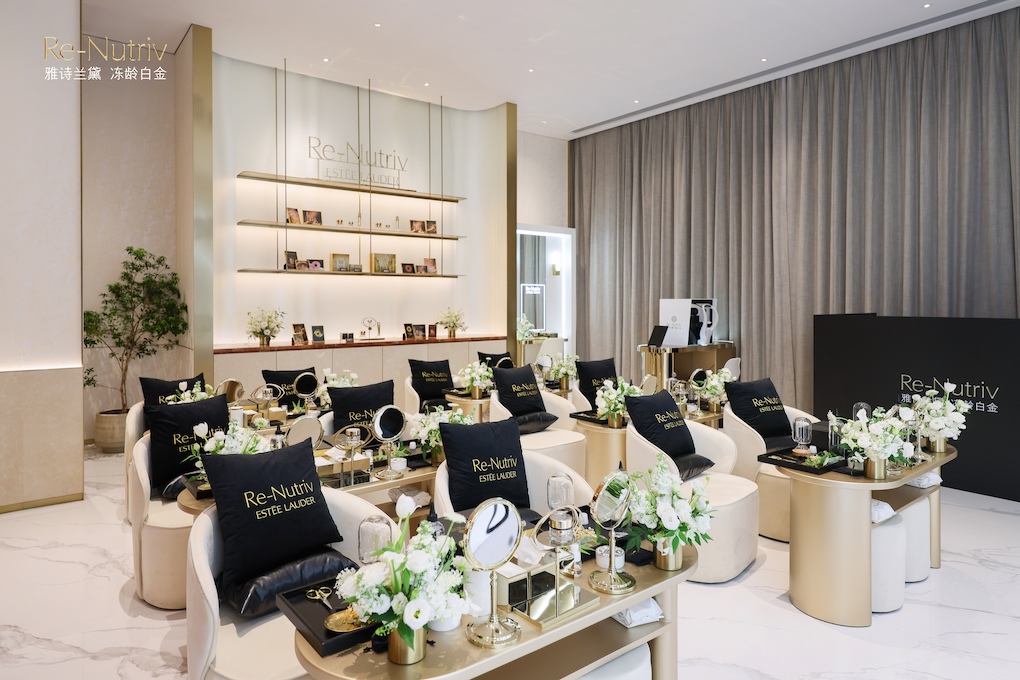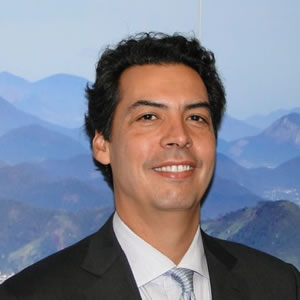BRAZIL. Seven new border duty free stores are set to open inside Brazilian territory by year-end, as travel retailers seize the opportunity to expand in this fledgling channel, writes John Gallagher. That’s according to influential local politician Frederico Antunes, who spoke on day two of the inaugural Latin American border store conference (Encuentro de Frontera 2019) in Porto Alegre on 5-6 November.
As reported, the event was created to discuss the opportunities in this new duty free channel in Brazil, and attracted around 170 delegates. Encuentro de Frontera was organised by South American Duty Free Association ASUTIL and CEFSU, the Chamber of Uruguayan Free Shop Operators. [Click here for our day one report from 5 November.]
A highlight of day two was the presentation by Antunes, who had a big influence in ensuring the law was passed in Federal Parliament to allow duty free stores to open in Brazil’s twin border cities. He was also a key figure in ensuring the accompanying legislation to permit shops to open was passed by the relevant regional authorities.
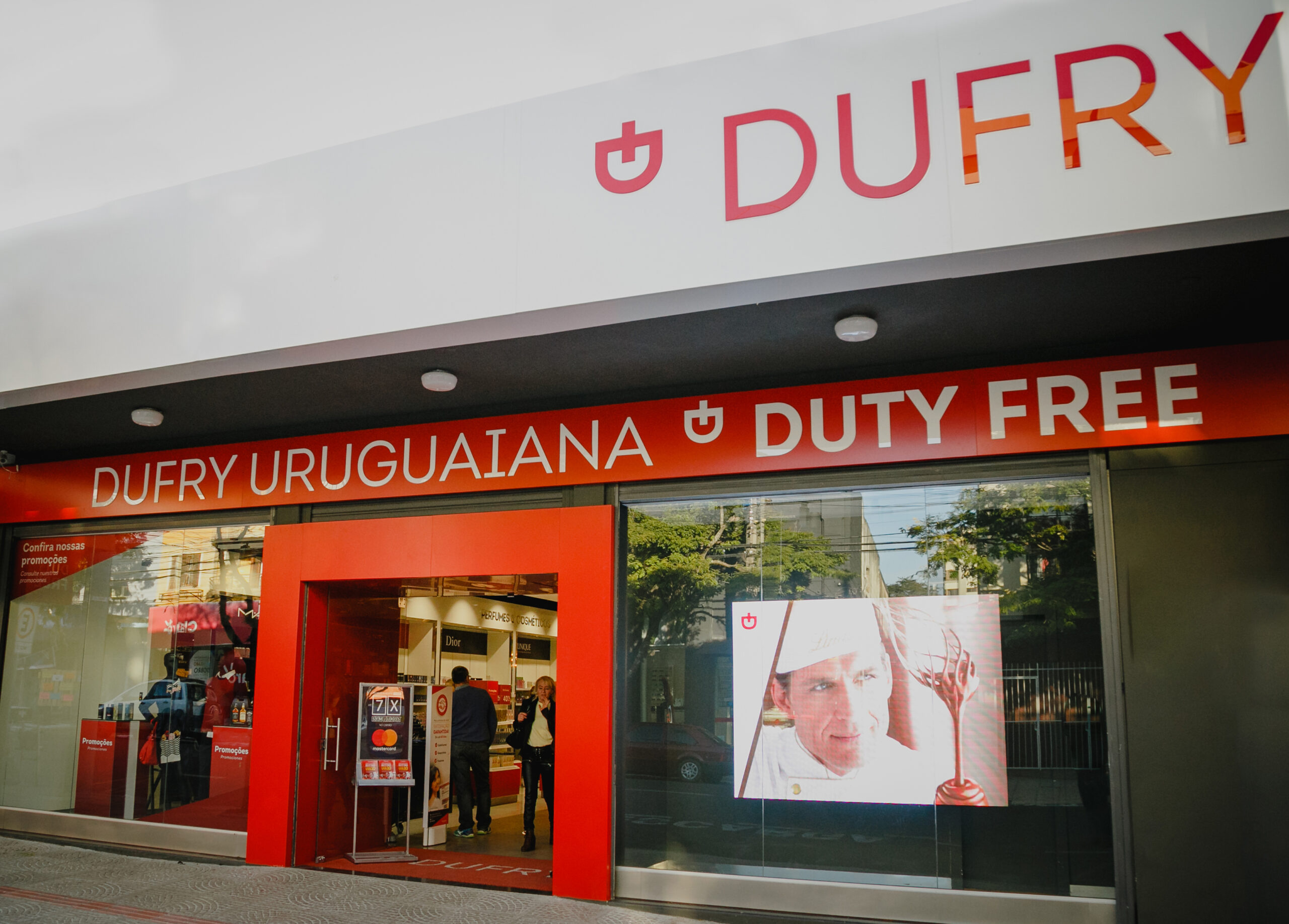
Antunes confirmed that the current legislation allowed 33 Brazilian cities to open border duty free stores. So far six stores have opened: Dufry do Brasil, Central Free Shop, Brasil Free Shop and New York Free Shop in Uruguaiana, Free Shop Caraballat in Jaguarão and Emporio Duty Free in Barra do Quarai.
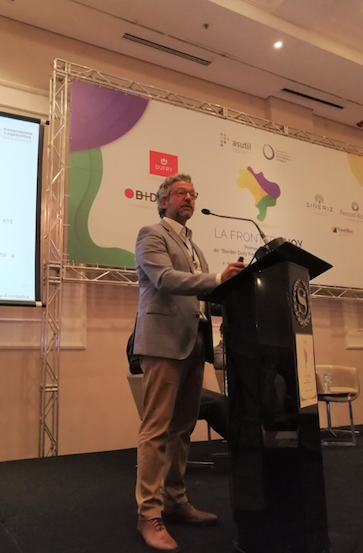
He confirmed that within the next few weeks and almost certainly before the end of the year, a further seven stores will open. These include Duty Free Americas (DFA) in Uruguaiana, Free Shop Maua in Porto Maua and Brasil Free Shop in Quarai. In Foz do Iguacu, he added that DFA and Sky Duty Free would open shortly along with Top Internacional in Guajira – Mirim and an independently-owned store in Bonfim.
Antunes also shared with the delegates his belief that President Bolsonaro would follow through with his Twitter announcement and increase the border duty free allowance from US$300 to US$500.
Antunes stated that the new duty free activity on the border was having a positive effect on tourism-related activities. Hotels, bus companies and airlines are looking to invest in new projects, he said. He advised that Brazilian airline Two Flex was planning several routes in Rio Grande do Sul and that Argentine regional airline American Jet was also studying routes in the province.
Antunes concluded by saying that frontiers should never divide people but should bring them together. “The terrestrial border duty free project will bring Brazilian residents closer to their neighbours who live only a few kilometres away but in another country,” he said.
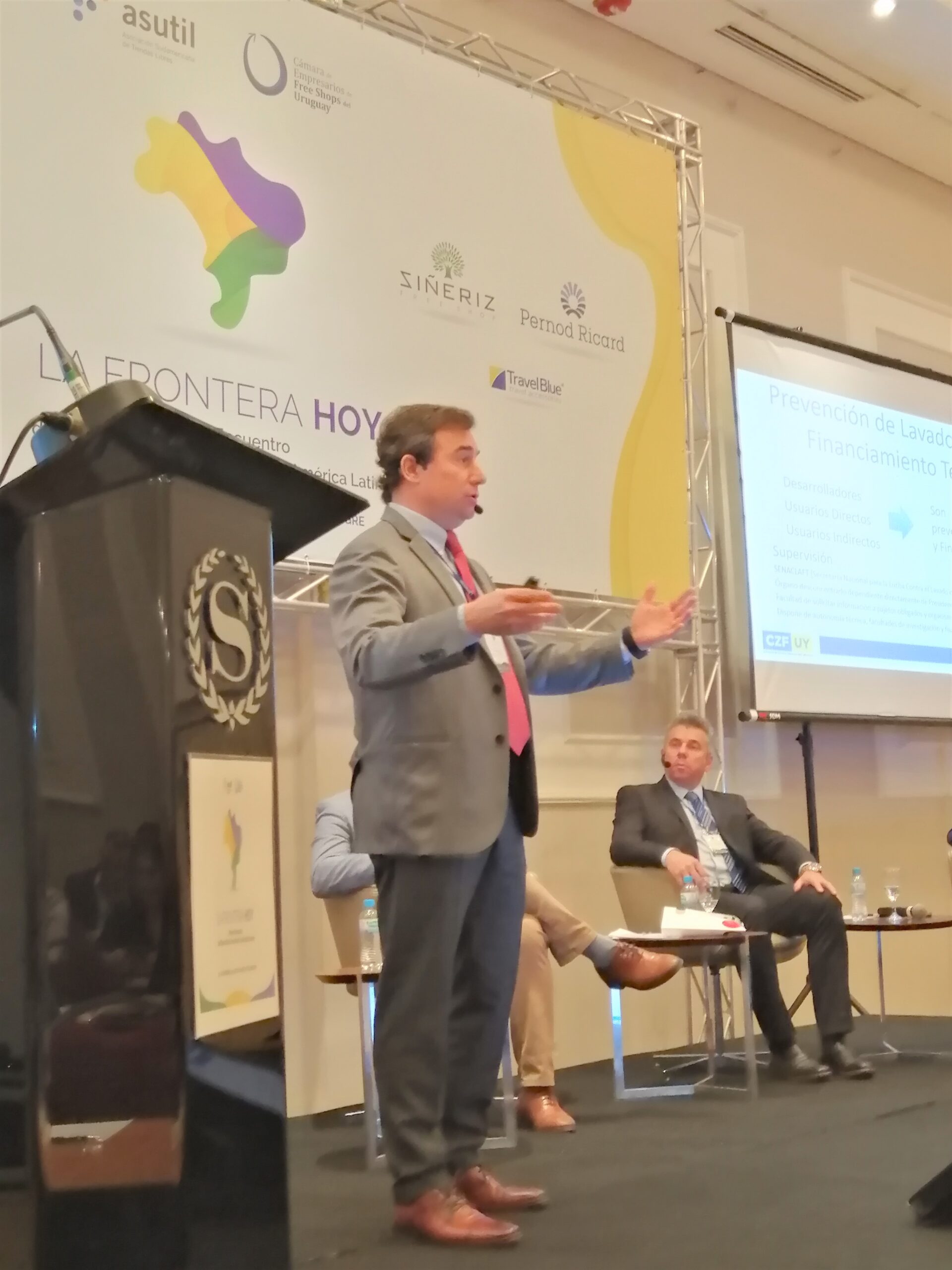
Diego Licio, President of Uruguayan Chamber of Free Zones (CZFU) explained the benefits of the Free Zone system in Uruguay and how suppliers and retailers involved with Brazilian border stores could benefit.
Some 11 Free Zones have been established since 1987, employing more than 14,000 people. Logistics and transport are well-developed business activities in all Uruguayan Free Zones and several companies specialise in importing goods, repacking and moving in customs-bonded transport to different destinations. “Brazilian retailers will be able to benefit tremendously from this system,” said Licio. “Already several companies are offering logistics services from Uruguayan Free Zones to border stores in Brazil and we expect this segment to grow in the short and medium term.”

Oscar Bentancur, Founder of foreign trade consultant Via Balcão, shared his knowledge of how to do business with Brazil and began by explaining the history of cross-border trade between Brazil and neighboring countries.
Bentancur pointed out the importance of foreign exchange rates and stressed that the relative value of the Brazilian currency with the US Dollar and the currencies of Argentina, Uruguay and Paraguay was a huge influence on the flows of exports and imports. Given the high rates of regional and national taxes, Brazil-manufactured products are often cheaper to purchase in Uruguay, Paraguay and Argentina than in Brazil. He pointed out that it was the birth of the Mercosur trading area that was the biggest boost to foreign trade in the area, with Brazil increasing its export to all trading partners.
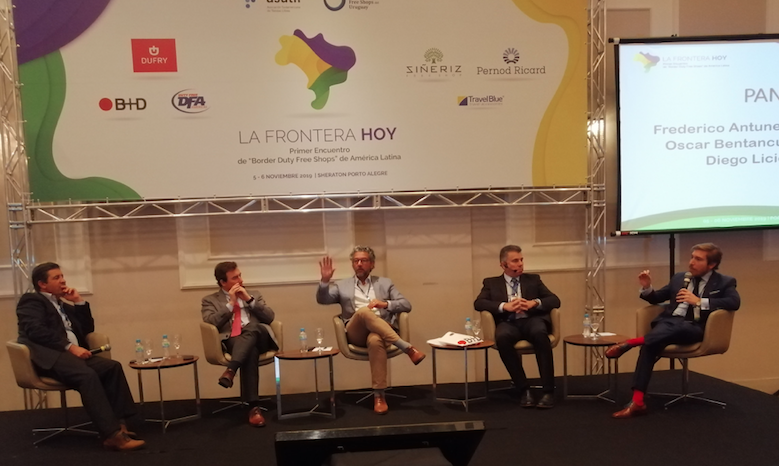
In a note of caution, Bentancur advised delegates to ensure that their logistics partners are aware of all aspects of Brazilian import legislation. Invoices and packing lists must be fully accurate, he stressed, while pallets and other packing materials must conform to Brazilian legislation. Any mistakes lead to fines for the importing company, he noted, and duty free operators have no special privileges, he added.
Bentancur also pointed out to suppliers that Brazilian duty free shops are not totally duty free – operators are exempt from paying import duties but there are certain state and provincial taxes which must be paid. In some categories this can be around 15% of the invoice value. Bentancur said that although some of these taxes may be revised and their application simplified, they would not disappear.
Bentancur summarised by saying that the new channel will lead to more business for suppliers and retailers in the medium term.
Industry observers agree that solid and consistent growth will not happen until the Brazilian economy rebounds and grows GDP above its current level (less than +1% this year).
A key feature of day two was a series of morning networking sessions, where retailers in the new channel had the chance to discuss potential business with suppliers, with the conference agenda starting after the coffee break.

ASUTIL Secretary General José Luis Donagaray told the Moodie Davitt Report that it made sense for retailers and suppliers to get together again quickly after the first day. He said arranging separate networking times also ensured a big turnout for the plenary conference sessions, which offered useful information for those who had little experience of doing business in Brazil.
Networking sessions have been an important and well-loved feature of ASUTIL-organised events for many years. Both suppliers and retailers told The Moodie Davitt Report that they were pleased to make contact this way; suppliers confirmed that they expected trial orders from these first contacts.
The conference closed with roundups from Donagaray and Carlos Loaiza, Secretary General of CEFSU. Donagaray said: “We hope to make this an annual event and already we are looking to decide on a location for the next event and find a date that suits all parties.”
ASUTIL and CEFSU President Enrique Urioste closed by recalling his first meeting with Frederico Antunes when the deputy was starting the long road to establish legislation to permit the new business channel. He congratulated Antunes on his tenacity and said he believed that the new Brazilian border business would benefit everyone involved in Latin American duty free.







